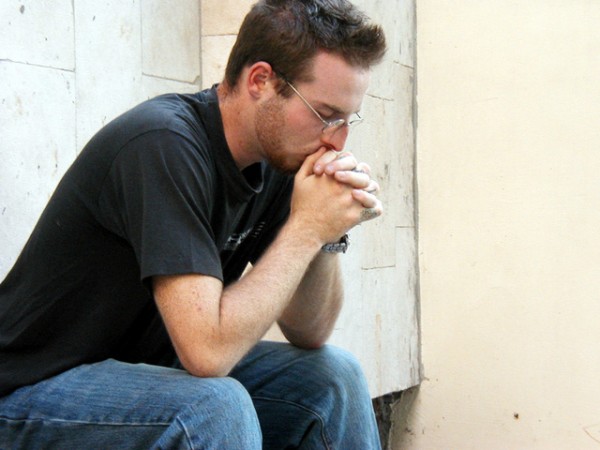Devote yourselves to prayer, being watchful and thankful. And pray for us, too, that God may open a door for our message, so that we may proclaim the mystery of Christ… (Colossians 4:2-3 NIV)
I don’t pretend to be an expert at this… not in the least. What follows are simply thoughts I felt convicted enough to write on a bookmark sometime last year. I tucked them away inside a book that I reopened just last week. They’re as convicting and relevant today as they were when I first wrote them.
Background: I have ideas for ministry to Christian leaders that have been bubbling under the surface for quite some time now. The truth is, I’ve been carrying them for nearly 20 years. From time to time, they rise to the surface, only to settle back down for one reason or another. I’ve engaged these desires for ministry to some capacity over the years, but never fully. For reasons only know to the Lord, He has neither seen fit to bring them to full fruition nor to set them out to pasture.
My interpretation is that the time for their ultimate fulfillment has not yet come within God’s economy.
But what are we supposed to do while we’re waiting? While I know the answer, I’ve not always been the best waiter by experience.
What do we mean when we say “wait on the Lord”, anyway? When we go to a nice restaurant, what’s the difference between a poor waiter, a decent waiter and a great waiter? In a sense, we might say the difference is the level of attention the waiter gives to the one he or she is serving.
How much attention are we giving to the One we serve? Sitting with this question exposes all kinds of selfish preoccupation on my part. If I’m really honest, my life most days is much more about me than about Him.
In Colossians 4:2-3, The apostle Paul gives us a succinct but powerfully simple checklist for being a good waiter in our service to the Lord:
Devote yourselves to prayer. How often I’ve neglected this aspect of my spiritual life and instead focused on all the activities of accomplishment! Yet, if I’m really honest, my productivity diminishes when I prioritize busy activity to the exclusion of my intimate time with God. Paradoxically, I seem to accomplish more of what’s truly valuable when I take the time to prioritize Him through the Word and especially through prayer. It’s completely counter-intuitive to my type-A brain. The Christian life works best in a surrendered posture to His agenda rather than ours.
Be watchful. When we’re devoting ourselves to prayer, it’s not like we’re supposed to be doing nothing at all. Scripture encourages us to be watchful. That is, pay attention to our circumstances as we remain surrendered to the Lord in prayer. As Henry Blackaby said in Experiencing God, we should pay careful attention to God’s activity around us as we wait. When we see Him working around us in a way that’s consistent with our area of calling, that may well be God’s invitation for us to join Him there.
Be thankful. As we wait and watch all the activity around us, our flesh might be tempted to envy what we see other people doing and the opportunities they have. Contentment is an interesting balance: we’re encouraged to desire the next thing God wants for us, all the while holding loosely the desires He’s placed inside us for something more and being content with what He’s already given us. Practically speaking, this means it’s not wise to set our hearts fully on the next opportunity, accomplishment or dream fulfillment. Our salvation isn’t in the next opportunity or possession but rather in the God who wants to take us there. He alone is our greatest possession. Until we’re content with Him alone, we won’t be content with anything we can acquire or obtain from Him.
Pray for God to open a door. As we pray, actively watch for God’s activity and focus on being content in our relationship with Him, we’re finally encouraged to pray (and ask others to pray) for the Lord to give us not only an open door but an awareness when that door has been opened. Revelation 3 talks about God opening a door that no one can close and closing a door that no one can open. Instead of beating our heads against a door that He’s locked or being afraid to walk through a door He’s opened (either of which I’m all too inclined to do), are we willing to trust God to work this out in His timing?
How might God be asking us to apply these simple principles as we wait on Him today?

